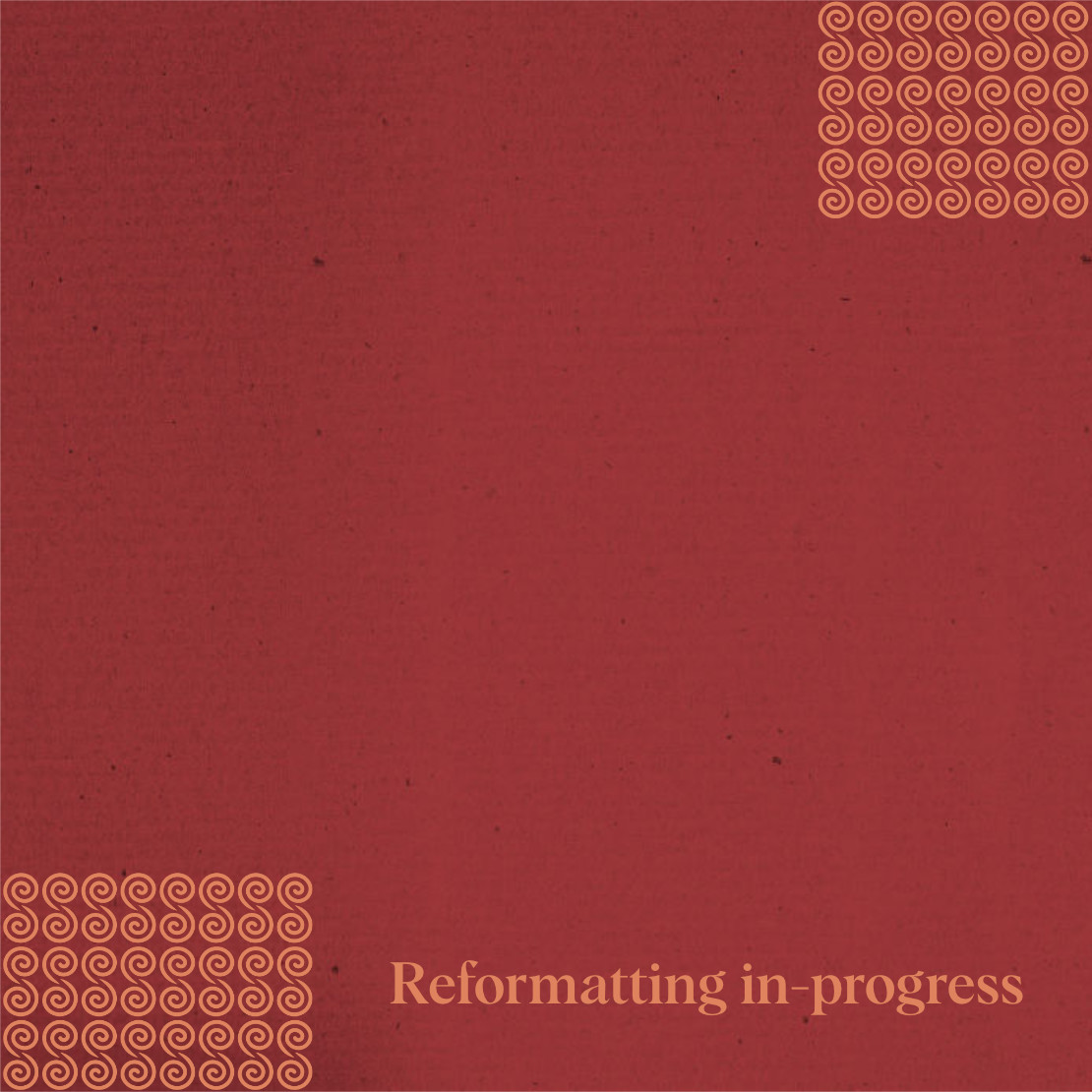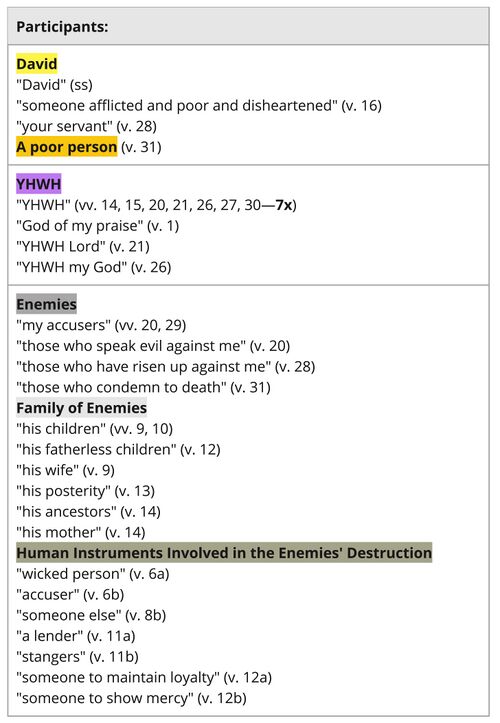Psalm 109 Overview
Welcome to the Overview of Psalm 109
This page will introduce and provide orientation to Psalm 109 as a whole. It includes the following sections:
Introduction to Psalm 109
Author:
- David
Purpose:
- To appeal to YHWH’s loyalty to bring justice on disloyalty.
Content:
- My enemies have broken their covenant with me (vv. 2-5, 16-20) and I am innocent and afflicted (vv. 2-15, 22-25. And you are loyal in your covenant with me (vv. 21, 26). Therefore, YHWH, execute justice by punishing my enemies (vv. 6-20) and vindicating me (vv. 21-31)!
Message:
- YHWH remains loyal to his covenant even when humans are disloyal to their own.
Psalm 109 At-a-Glance
These sections divide the content of the psalm into digestible pieces , and are determined based on information from many of our layers, including Semantics, Poetics, and Discourse. The columns, left to right, contain: the verse numbers; the main title of the section; a brief summary of the content of that section (quote marks indicate the text is taken directly from the English text of the psalm (as per our Close-but-Clear translation); and an icon to visually represent and remember the content.

Background Orientation for Psalm 109
Following are the common-ground assumptionsCommon-ground assumptions include information shared by the speaker and hearers. In our analysis, we mainly use this category for Biblical/Ancient Near Eastern background. which are the most helpful for making sense of the psalm.
- A covenant is a relationship between two parties, solemnized by oaths and based on "loyalty" (חֶסֶד). When making a covenant, the two parties would invoke curses (קְלָלָוֹת) on themselves in the case of their failure to be loyal (see e.g., Deut 27-28).
- Oftentimes, these curses included the extinction of one's family line, which is the worst possible thing that can happen to someone. (See e.g., an 8th century Aramaic treaty: COS 2.82; Hittite treaties: COS 2.17A; cf. COS 2.17B; COS 2.18; the Vassal Treaties of Esarhaddon, ANET 534-41.)
- The making of a covenant and the invoking of covenant oaths/curses were often accompanied by rituals to solemnize the event and symbolize the nature of the curses (cf. Gen 15; Jer 32:18; COS 2.82). It appears that putting on clothes, drinking water or beer, and rubbing oil on oneself (see Ps 109:18) sometimes had a part in oath-taking ceremonies (cf. Vassal treaties of Esarhaddon, ANET, lines 560-562, 622-624; Hittite text, KUB 26.25, ca. 1200-1180, cited in Kitz 2007, 446-447; Num 5:21-22).
- People who are falsely accused of something, including the violation of a covenant, can take their case to a judge (cf. Deut 25:1).
- Because YHWH is "the judge of all of the earth" (Gen 18:25), those who are innocent yet falsely accused and/or falsely convicted can appeal to him for vindication (cf. Pss 5, 7, 17, 35, etc.).
Background Situation for Psalm 109
The background situation is the series of events leading up to the time in which the psalm is spoken. These are taken from the story triangle – whatever lies to the left of the star icon.


